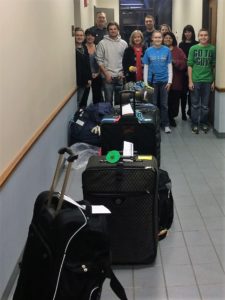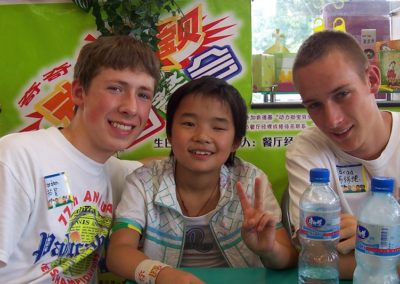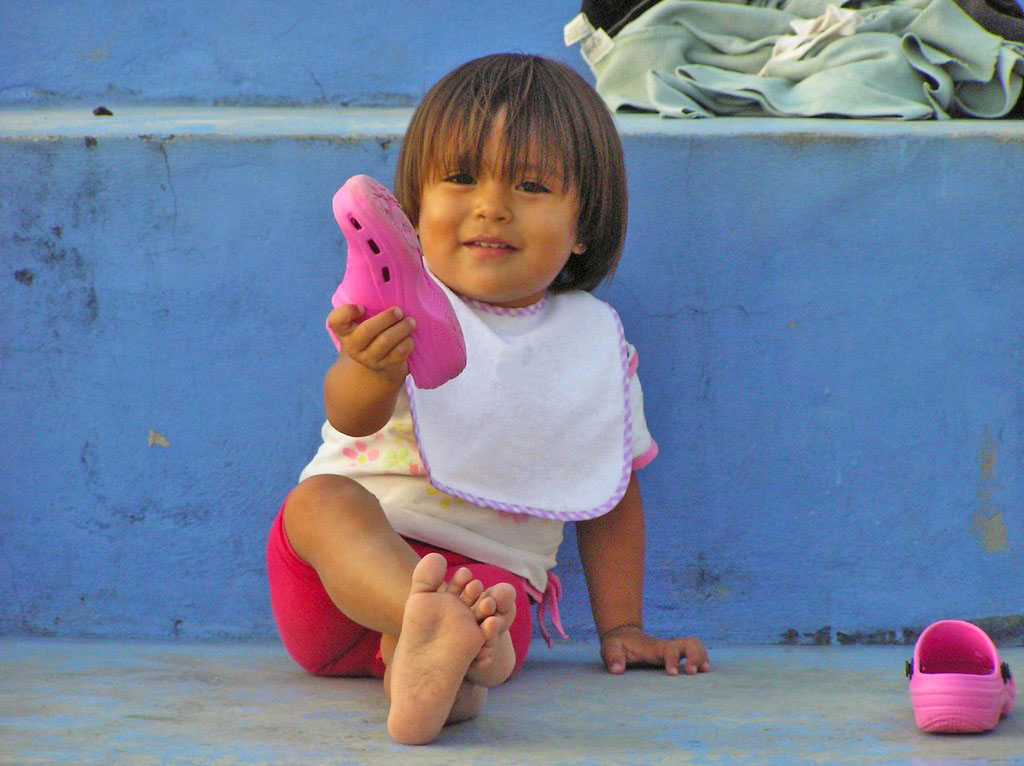Humanitarian Aid
Helping the children left behind
Giving hope around the world
Hope International travels all over the world to provide relief to children in orphanages. We have donated: food, medicine, hearing aids, wheelchairs, school supplies, sanitation supplies, building materials, a solar-powered hot water heater, and a well.
For all the children we cannot bring home to a family, we want to provide relief. People ask, “How do you decide what to do?” There are always so many needs in an orphanage, so we prioritize the most important needs first, such as clean water and food, and then concentrate on secondary needs such as medicine, bedding, diapers, and school supplies. While it’s hard to imagine that medicine and diapers are secondary needs, if a child does not first have clean water to drink and food to eat, those beco me less important. When we have an opportunity to provide for the “extras,” such as books, toys, and games, we love seeing children’s faces light up.
me less important. When we have an opportunity to provide for the “extras,” such as books, toys, and games, we love seeing children’s faces light up.
Hope focuses its Humanitarian Aid efforts on the countries where we have adoption programs and the countries to which our families travel. Although Hope is a small agency and cannot provide thousands of dollars in aid to a particular orphanage, we have found success in connecting resources. For example, we were once asked to buy hearing aids for a teenage girl in Congo. Instead, we were able to facilitate a donation for her to receive two hearing aids.
When Hope’s staff travels to a country to develop an adoption program, we take supplies that have been requested by the orphanages. Due to limited luggage space and in order to support the local economy, we take donations that have to be of a certain quality or cannot be bought in-country. We maximize our effectiveness by carefully planning how best to meet an orphanage’s needs. We rarely send money, always preferring for Hope staff to buy and distribute things directly.
We also collect donated medical supplies, school supplies, and clothing for volunteers to carry when traveling on mission trips.
Thanks to generous donors like you, Hope has:
In Bangladesh: Conducted eye glass clinics; provided food, clothing, and other supplies to Dhaka orphanages
In Bolivia: Sent medicines to children in need
In China: Provided formula, wheelchairs, medicines, and surgeries for children in need
In Congo: Took medical supplies, school supplies, and clothing to four orphanages, arranged for hearing aids for Mercia.
In Liberia: Provided funding to buy food and sanitation supplies to protect against Ebola, and provided building materials for a roof over school classrooms
In Haiti: Purchased solar powered hot water heater, new mattresses, dental supplies, formula, and diapers and clothing for an orphanage; participated in feeding program
In Honduras: Took medical and dental supplies, school supplies, and clothing to 7 orphanages, conducted eye glass clinic
In Ukraine: Partially funded the building of four cabins at a summer camp for orphans and shipped winter clothing, quilts, and wheelchair
In Russia: Provided an industrial stove along with redoing a kitchen in an orphanage, supplied a water filter system, gave clothes and school supplies
In Zambia: Provided funds for backpacks for children in a village
Hope’s staff traveled to visit orphanages and distribute humanitarian aid to over 1000 children.
Orphaned Children
UNICEF estimates there are 150 million orphans world-wide. Most of these children will spend their entire childhoods within the orphanage walls. They live day to day receiving only minimal interaction with caregivers. These children do not receive enough food, medical attention, social interaction, or education.
Most orphaned children are delayed developmentally by four to six months for every year they live in an institution. When these children “age out” of the orphanage, usually between the age of 14 and 18, 20% will commit suicide within a year of leaving.
Surviving orphans statistically turn to crime by joining gangs, the mafia, and even terrorist organizations in order to survive. 80% will turn to prostitution. This lifestyle makes them more likely to perpetuate the cycle, abandon their own children, and exponentially increase the cycle of neglect. It is a dangerous and desperate problem.
Sometimes Statistics Speak Volumes
Orphans Worldwide
Displaced Children
Orphans are the seventh largest population in the world
If all the orphans in the world made up a single country, it would be the 7th largest nation on the planet – larger than Bangladesh, Russia, Nigeria, Japan or Mexico.
- China 33.6%
- India 28.7%
- United States 7.6%
- Indonesia 6%
- Brazil 4.8%
- Pakistan 4.3%
- Orphans 4.1%
- Bangladesh 3.8%
- Russia 3.6%
- Nigeria 3.4%
Consider these shocking facts…
- In some Middle Eastern countries, unwanted children with Downs Syndrome are used for terrorist acts of bombing.
- In Africa, homeless children are armed and used for war.
- In Africa, it is a daily struggle to extend children’s lives beyond 5 years of age.
- In Eastern Europe, less than 50% of the orphan population will live to see their 20th birthdays.
- In Eastern Europe, of the orphans that survive their 20th birthdays, 50% will end up in organized crime, drugs, or prostitution.
- In the U.S., 25% of foster children become homeless as adults.
- In the U.S., 30,000 leave the system every year without becoming part of a family.
Foster children statistics
%
Enter unemployment ranks
%
Emancipated males end up jail
%







